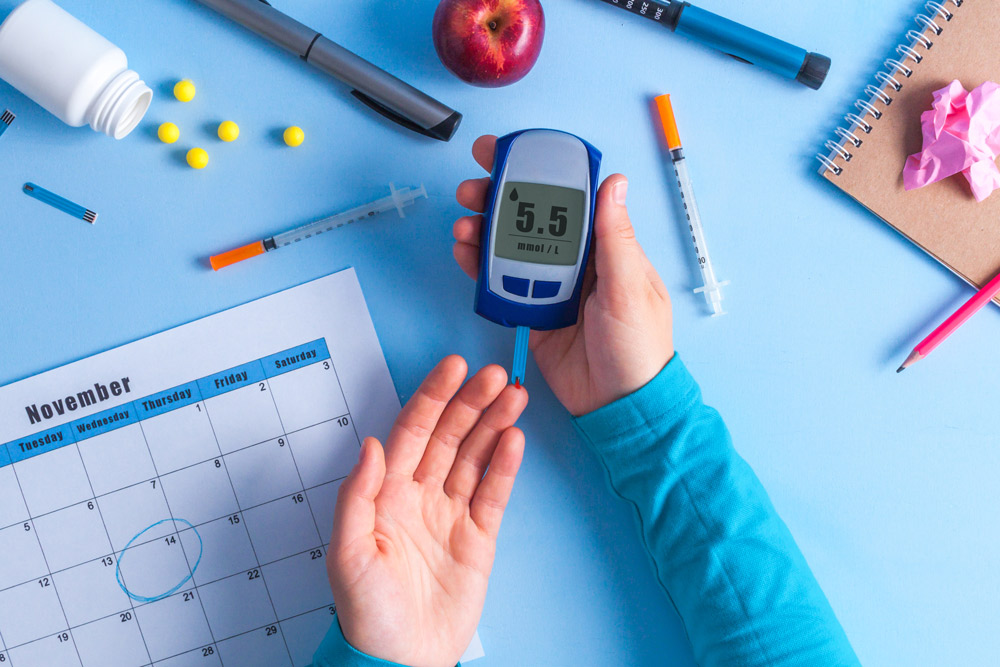The relationship between vitamin D and type 2 diabetes (T2D) has been widely researched. While no definitive causal link has been proven, evidence suggests that vitamin D may play a protective and modulatory role in both preventing and managing T2D.
1. Vitamin D and Insulin Function
Vitamin D is directly involved in how the body produces and uses insulin:
-
Insulin secretion: Pancreatic β-cells (which produce insulin) contain vitamin D receptors (VDR). Vitamin D helps regulate calcium signaling in these cells, which is crucial for insulin release.
-
Insulin sensitivity: Vitamin D improves how tissues like muscle and fat respond to insulin.
-
Inflammation control: Chronic inflammation is a major factor in insulin resistance, and vitamin D may help reduce it.
2. Low Vitamin D Levels and Diabetes Risk
Research has consistently shown that:
-
People with low vitamin D levels are more likely to develop type 2 diabetes.
-
Deficiency is also linked to obesity, insulin resistance, and metabolic syndrome.
However, correlation doesn’t always mean causation. Low vitamin D often accompanies poor lifestyle factors—like less sun exposure, poor diet, and low activity—which themselves increase diabetes risk.
3. Can Vitamin D Supplementation Help?
Prevention
-
Some studies suggest supplementation may lower diabetes risk in people with prediabetes.
-
The U.S. D2d trial showed that high-dose vitamin D slightly reduced diabetes onset in vitamin D–deficient adults.
Management
For those already living with T2D, vitamin D may modestly improve:
-
Insulin sensitivity
-
HbA1c (blood sugar marker)
-
Inflammation markers
Still, results are mixed and the biggest benefits appear in people who are deficient.
4. What Vitamin D Levels Matter?
Vitamin D is measured as 25(OH)D in the blood:
-
Deficient: < 20 ng/mL
-
Insufficient: 20–30 ng/mL
-
Sufficient: 30–50+ ng/mL
Most studies show supplementation works best for those starting below 20 ng/mL.
Summary: Vitamin D and Type 2 Diabetes
| Aspect | Role of Vitamin D |
|---|---|
| Risk Reduction | May lower T2D risk in people with low levels |
| Insulin Function | Supports insulin secretion and sensitivity |
| Supplementation | May help, especially in deficiency |
| Treatment | Modest improvements in glucose control |
| Best Use | Screen for deficiency; correct if low—not a cure-all |
Practical Takeaway
If you have type 2 diabetes—or are at risk—consider these steps:
-
Check your vitamin D levels with a 25(OH)D blood test.
-
If levels are low, discuss supplementation with your doctor.
-
Support your health with sunlight exposure, vitamin D–rich foods, or supplements when needed.
Vitamin D alone won’t prevent or cure diabetes, but maintaining healthy levels may be a valuable piece of the puzzle in protecting your metabolic health.

